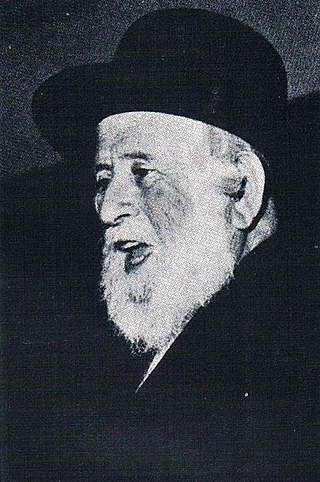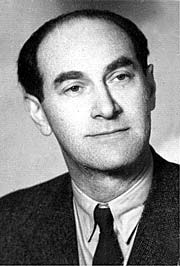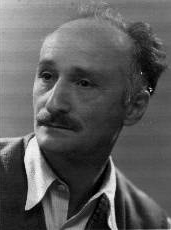Related Research Articles

Martin Seth Kramer is an American-Israeli scholar of the Middle East at Tel Aviv University and the Washington Institute for Near East Policy. His focus is on the history and politics of the Middle East, contemporary Islam, and modern Israel.

Anita Shapira is an Israeli historian. She is the founder of the Yitzhak Rabin Center, professor emerita of Jewish history at Tel Aviv University, and former head of the Weizmann Institute for the Study of Zionism at Tel Aviv University. She received the Israel Prize in 2008.

Avner Falk is an Israeli clinical psychologist and author. Falk has written psychoanalytic studies of Jewish and Israeli leaders, Jewish history, the Arab–Israeli conflict, antisemitism and Islamic terrorism.

Reuvein Margolies, was an Israeli author, Talmudic scholar and head of the Rambam library.

Ran BenShimon is a former Israeli football player, and who manages the senior Israel national team.

Yair Auron is an Israeli historian, scholar and expert specializing in Holocaust and genocide studies, racism and contemporary Jewry. Since 2005, he has served as the head of the Department of Sociology, Political Science and Communication of The Open University of Israel and an associate professor.

Avi Beker was an Israeli writer, statesman, and academic. Beker served as secretary-general of the World Jewish Congress from 4 October 2001 to 14 October 2003.
Daniel Doron was an Israeli political activist and translator. He was the founder and director of the Israel Center for Social and Economic Progress (ICSEP). In this capacity, he recommended economic changes to the Israeli government, some of which have successfully been implemented. He wrote on the advantages of free market economics for The Wall Street Journal and The Jerusalem Post. He translated The Catcher in the Rye and A Portrait of the Artist as a Young Man into Hebrew.

Tuvia Friling is an Emeritus professor at Ben-Gurion University of the Negev, Israel. Previously he served as a senior researcher at the Ben-Gurion Research Institute for the Study of Israel and Zionism and a lecturer at the Israel Studies Program both at Ben-Gurion University of the Negev.

Henryk Hechtkopf was an artist, painter, and illustrator. His work encompassed a range of subjects and artistic styles, including biblical scenes, portraits, surrealism, and abstract expressionism. Hechtkopf was also a filmmaker and taught at the Łódź Film School. He illustrated numerous children's books in Israel, including the widely used "Mikraot Israel" series. Hechtkopf's art was influenced by his Jewish background and his experiences during World War II, with some of his works depicting the aftermath of the Holocaust being acquired by Yad Vashem. He received several awards for his artistic contributions, including the Shalom Aleichem Prize and the Israel Culture Foundation Prize.

Dina Porat is an Israeli historian. She is professor emeritus of modern Jewish history at the Department of Jewish History at Tel Aviv University and the chief historian of Yad Vashem.

Aharon Doron was a major general in the Israel Defense Forces and an educator. He served as the head of the Manpower Directorate under the General Staff from April 1961 to July 1963. After his release from the military, Doron held various positions at the University of Tel Aviv and Israeli sports associations. In 1992 he was appointed military ombudsman by the late Prime Minister Yitzhak Rabin.

Alexander Bogen was a Polish-Israeli visual artist, a decorated leader of partisans during World War II, a key player in 20th century Yiddish culture, and one of the trailblazers for art education and Artists' associations in the emerging state of Israel.
On 19 November 2015, a Palestinian gunman opened fire on a line of traffic near Alon Shvut in the West Bank and continued to fire as he drove the car towards Gush Etzion Junction where he lost control of the vehicle, which then crashed into another vehicle. As a result, 3 civilians were killed and 5 were wounded.
Hana Wirth-Nesher is an American-Israeli literary scholar and university professor. She is Professor of English and American Studies at Tel Aviv University, where she is also the Samuel L. and Perry Haber Chair on the Study of the Jewish Experience in the United States, and director of the Goldreich Family Institute for Yiddish Language, Literature, and Culture.

Am Yisrael Foundation is a Tel Aviv and New York–based foundation and umbrella nonprofit organization for a variety of initiatives that promote Zionist engagement among Jewish young adults residing in Israel, including providing leadership platforms for young Jews who have made Aliyah, or are contemplating immigration to Israel.

Michal Govrin is an Israeli author, poet and theater director.

Lizzie Doron is an Israeli author.
The International Conference on the Holocaust and Genocide was the first major conference in the field of genocide studies, held in Tel Aviv on 20–24 June 1982. It was organized by Israel Charny, Elie Wiesel, Shamai Davidson, and their Institute on the Holocaust and Genocide, founded in 1979. The conference's objective was to further the understanding and prevention of all genocides; it marked the shift from viewing genocide as an irrational phenomenon to one that could be studied and understood.

Roni Stauber is an Israeli historian. He is an Associate Professor in the Department of Jewish History at Tel Aviv University. Stauber serves as the Director of the Goldstein-Goren Diaspora Research Center and the Director of the university's Diploma Program in Archival and Information Science. Stauber is also a member of the academic committee of Yad Vashem. His research focuses on various aspects of Holocaust memory and the formation of Holocaust consciousness in Israel and around the world. In particular, he examines the interrelations between ideology and politics, and between collective memory and historiography, with a focus on Israeli-German relations.
References
- 1 2 3 4 5 6 7 "Of Nazis and watermelon". Archived from the original on 2009-06-14. Retrieved 2009-06-14.
- ↑ "Playwright bases play on his mother's Auschwitz experience Archived September 29, 2011, at the Wayback Machine ," Howard Blas, Jewish Ledger, April 10, 2007
- 1 2 "Archived copy". Archived from the original on 2015-06-26. Retrieved 2008-03-05.
{{cite web}}: CS1 maint: archived copy as title (link) CS1 maint: unfit URL (link) - ↑ Trade Secrets: Intellectual Piracy and the Origins of American Industrial Power Archived January 12, 2007, at the Wayback Machine
- ↑ Doron Ben-Atar, Hollywood Profits v. Technological Progress, Chronicle of Higher Education, April 1, 2005
- ↑ Trade Secrets, Christine MacLeod, Technology and Culture, Vol. 46, No. 2. (Apr., 2005), p. 443.
- ↑ A Companion to American Foreign Relations, By Robert D. Schulzinger, 2003, p. 52
- ↑ Thomas Jefferson: Reputation and Legacy by Francis D. Cogliano, 2006, Page 250
- ↑ "2002 Class M Boys Tennis Singles".